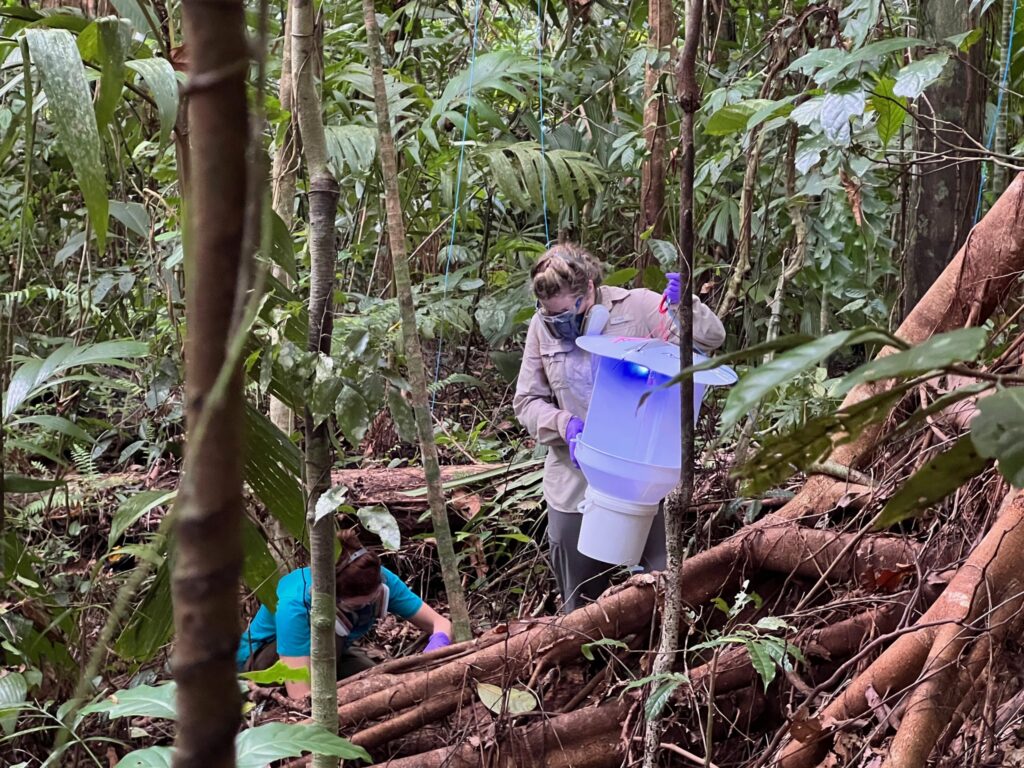This project will apply a novel molecular approach to construct pollination networks in logged and old-growth tropical forests in the Solomon Islands. DNA metabarcoding will allow us to comprehensively and efficiently develop rapid biodiversity assessment methods in threatened habitats. The results of this research will inform restoration and management strategies for tropical forest ecosystems that will be applicable globally.
Pollination is an ecosystem process that is crucial for plant reproduction and a functioning ecosystem. Linkage patterns between flowering plants and insect pollinators can be analysed using interaction networks. This analytical framework can not only be used for assessing the consequences of disturbance, but also to better understand forest recovery and recovery trajectories.
Over the last decade, one fifth of the world’s tropical forests have been lost due to clearing. Tropical forests are hotspots for biodiversity and provide a range ecosystem services that are important for humans. Despite this, remaining refuges of tropical forest continue to be threatened by human pressures like logging. Tropical forests outside the neotropics are generally poorly understood. They are geographically remote and there is lack of local specialist expertise to identify species. Unsurprisingly, the response of tropical forests to logging remains uncertain. Regenerating forests can show similar functional richness to old-growth forests, however, large pollinating insects that provide key ecosystem services may be more adversely affected in degraded sites. This highlights the complexity of disturbance and ecosystem processes. This project will generate knowledge that can be used in forest management and restoration.
Project team
- Dr Brittany Elliot
- Dr Elektra Grant
- Prof Helen Wallace
Project funding
Project partners
- Solomon Islands National University
